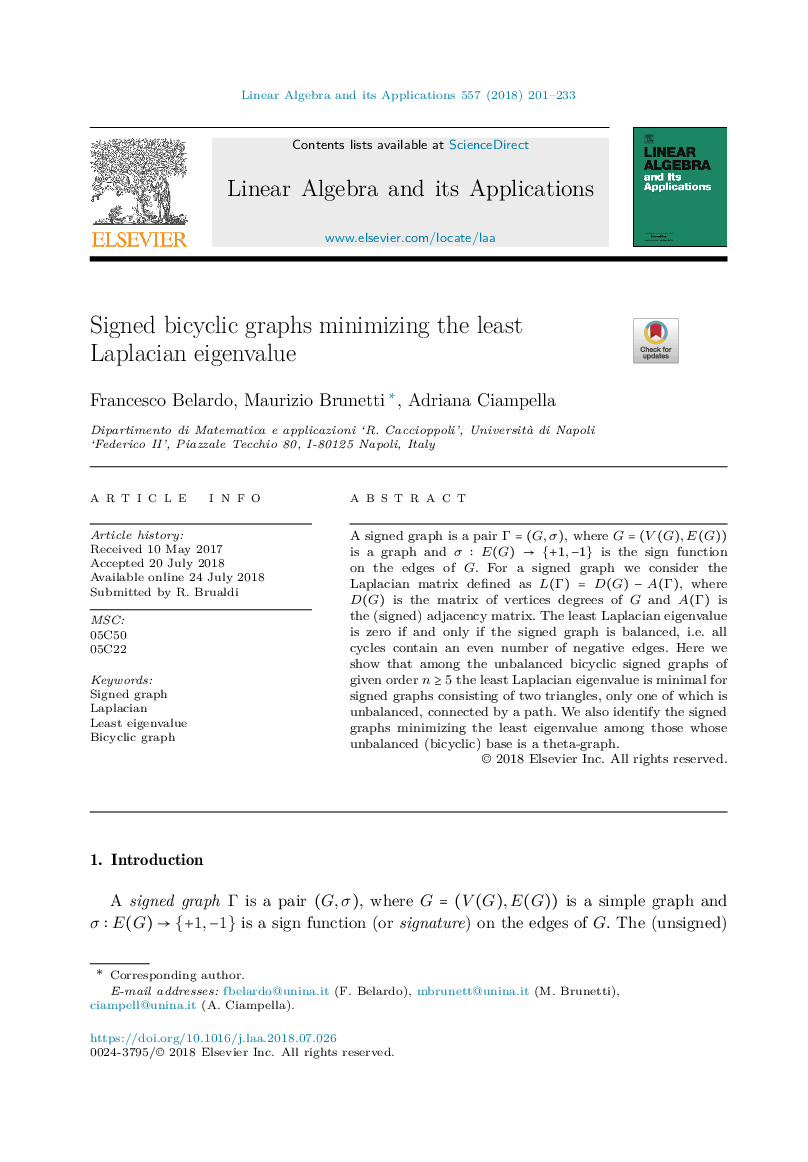| Article ID | Journal | Published Year | Pages | File Type |
|---|---|---|---|---|
| 8897661 | Linear Algebra and its Applications | 2018 | 33 Pages |
Abstract
A signed graph is a pair Î=(G,Ï), where G=(V(G),E(G)) is a graph and Ï:E(G)â{+1,â1} is the sign function on the edges of G. For a signed graph we consider the Laplacian matrix defined as L(Î)=D(G)âA(Î), where D(G) is the matrix of vertices degrees of G and A(Î) is the (signed) adjacency matrix. The least Laplacian eigenvalue is zero if and only if the signed graph is balanced, i.e. all cycles contain an even number of negative edges. Here we show that among the unbalanced bicyclic signed graphs of given order nâ¥5 the least Laplacian eigenvalue is minimal for signed graphs consisting of two triangles, only one of which is unbalanced, connected by a path. We also identify the signed graphs minimizing the least eigenvalue among those whose unbalanced (bicyclic) base is a theta-graph.
Related Topics
Physical Sciences and Engineering
Mathematics
Algebra and Number Theory
Authors
Francesco Belardo, Maurizio Brunetti, Adriana Ciampella,
